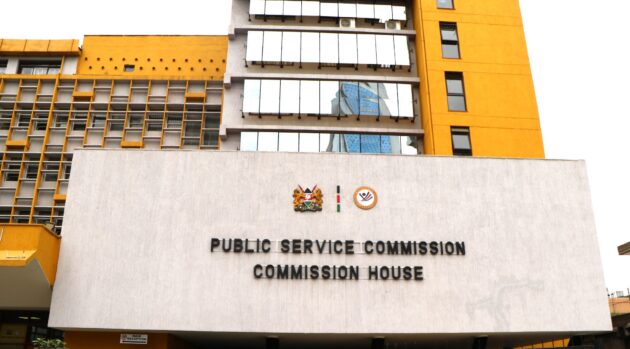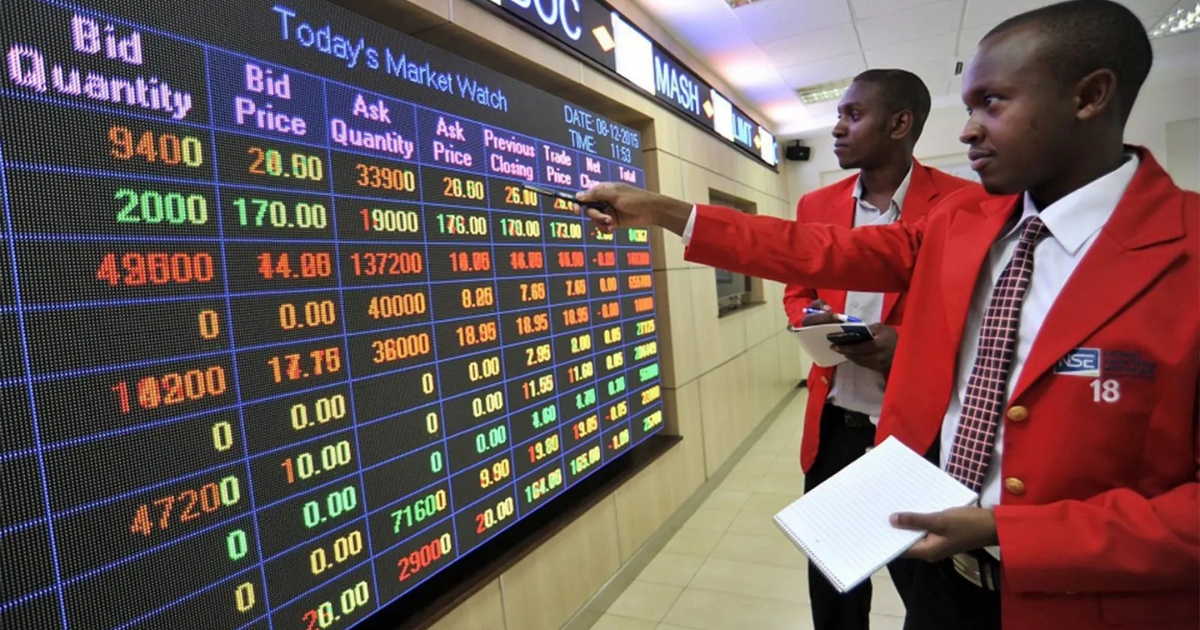- Money254 Money Weekly
- Posts
- 5 Quick Money Moves to Make the Day You’re Paid
5 Quick Money Moves to Make the Day You’re Paid
The first 24 hours after payday are the most critical for your financial health. By making a few quick, automated moves, you can secure your future before the temptations of the month kick in. This is how you take control before the money starts controlling you.

Greetings, and welcome to the 40th edition of the Wallet Wellness Newsletter - your midweek source of practical financial tips to elevate your money management skills!
We hope you got a chance to read last week’s edition, where we discussed how to rebuild your budget after back-to-school expenses. This week, we shift gears to 5 quick money moves to make the day you’re paid.
As always, be sure to check out the Concept Corner below for a deep dive into the money concept of the week.
Let’s dive in!
Sponsored Content
Have you ever owned a phone that not only keeps you connected but also unlocks access to loans and gives you free insurance?
With M-KOPA’s range of phones, you get exactly that and more. Free health insurance from Turaco? Check. Device protection against theft or damage? Check. Access to loans just three months after purchase? Check. Plus, the S34, equipped with a strong 13MP camera, lets you capture high-quality photos to elevate your business. Get Yours Today!
MONEY254 TIP OF THE WEEK
5 Quick Money Moves to Make the Day You’re Paid
That feeling when your salary hits your bank account is great, but it often disappears just as quickly. The first 24 hours after payday are the most critical for your financial health. By making a few quick, automated moves, you can secure your future before the temptations of the month kick in. This is how you take control before the money starts controlling you.
1. Pay Yourself First (Automate Your Savings)
The most important move you can make takes less than 60 seconds: automate your savings. Instead of waiting to save what's "left over," make saving non-negotiable.
The Action: Set up a standing order or an automatic transfer to move a fixed percentage (10% to 20%) or a fixed amount of your salary to a separate savings or investment account (like a Money Market Fund or a Sacco).
The Benefit: This eliminates the temptation to spend your savings. The money is working for you before it even appears fully available for spending.
2. Settle the Non-Negotiable Bills
Don't delay your essential bills. Leaving them until later increases the risk of forgetting and incurring late penalties or disrupting essential services.
The Action: Immediately pay critical expenses like rent, school fees, and any minimum debt payments (like mobile loans or credit card minimums).
The Benefit: You secure your essential needs and avoid the unnecessary fees and damage to your credit score that come from late payments.
3. Clear High-Interest Debt First
If you are carrying high-interest debt, especially credit card debt or short-term mobile loans, pay them down aggressively the moment you have the cash.
The Action: Pay more than the minimum payment on the debt with the highest interest rate. For instance, if you have a Ksh5,000 mobile loan due, clear it immediately to stop the high daily interest from compounding.
The Benefit: Every shilling you put towards the principal of a high-interest loan is a shilling of interest you won't have to pay, saving you significant money over time.
4. Fund Your "Budget Buckets"
To avoid running out of cash for specific needs, divide your remaining money into different "buckets" for the month.
The Action: Transfer money from your main checking account into segregated sub-accounts or even physical envelopes for categories like groceries, transport, and entertainment.
The Benefit: This provides a clear, visual limit on your spending. When your "Entertainment" bucket is empty, you know you're done for the month.
5. Review and Correct Your Budget
Don't just spend the money; spend some time planning how it will be spent.
The Action: Take 10 minutes to open your budgeting app or spreadsheet. Briefly compare last month's planned spending against your actual spending. Note where you went over budget (e.g., eating out, transport).
The Benefit: This quick review helps you adjust your behavior before you start spending your new salary, making you more mindful of your financial weak points for the coming month.
CONCEPT CORNER
Risk-Return Tradeoff
The risk-return trade-off is a concept of investing that states, “an asset's potential return will be proportional to the level of risk the investor takes.” Taking on more risk can mean potentially earning higher returns, but there's also a greater chance of losing money, including all initial capital. On the other hand, less risky investments that aren’t volatile may provide you with more secure returns, but these are likely to be low. Read more.
Money Tips & Career Advice
MONEY254 #MONEYTOK
7 Things to Consider Before Starting a Business in Kenya
Starting a business in Kenya is not just about coming up with a good idea. It is about timing, preparation and understanding the environment you are stepping into. Right now, conditions are tough. Taxes are going up, the shilling is weakening, and according to the Federation of Kenya Employers, 70,000 Kenyans lost their jobs in 2024, with nearly forty percent of employers planning further staff cuts. That means you need to be even more intentional before starting out.
In this video we take you through seven key things to think about before starting a business. We talk about return on investment, the risks involved, and how long it will take before your business starts paying you back. We look at the skills you need, how much you know about the industry, and how much capital you should have to bring your idea to life. Most importantly, we talk about your reason for investing. Money will motivate you, but passion and purpose are what will keep you going when challenges come.
@money254hq 𝟕 𝐓𝐡𝐢𝐧𝐠𝐬 𝐭𝐨 𝐂𝐨𝐧𝐬𝐢𝐝𝐞𝐫 𝐁𝐞𝐟𝐨𝐫𝐞 𝐒𝐭𝐚𝐫𝐭𝐢𝐧𝐠 𝐚 𝐁𝐮𝐬𝐢𝐧𝐞𝐬𝐬 𝐢𝐧 𝐊𝐞𝐧𝐲𝐚 Starting a business in Kenya is not just about coming up with a good idea. It is ... See more
That's it for this edition of Wallet Wellness. We hope these financial tips have added some energy to your hustle. Stay tuned for more practical insights in our next edition of "Wallet Wellness" next week, and watch out for Money Weekly in your inbox this Friday.
Also, don’t forget to download the Money254 App on the Google Play Store, and remember that we can help you compare over 300 loans, savings accounts, current accounts, and more if you’re thinking about your next product.
Cheers to your wallet's well-being!
Money254 editorial team.
FEEDBACK REQUEST ❤️
Poll: What do you think of this midweek Wallet Wellness email?We'd love to have your feedback on this Wallet Wellness newsletter. Let us know how you feel about it below! You will be able to give us direct feedback on how we can make it back after voting 🙏 |
Thank you to all of you who gave feedback on last weeks newsletter!
❤️ Share with a friend
Thanks for reading. If you liked this week’s Wallet Wellness email, we’d love for you to share it with a friend.
If this email was forwarded to you, you can subscribe here.





.jpg)

